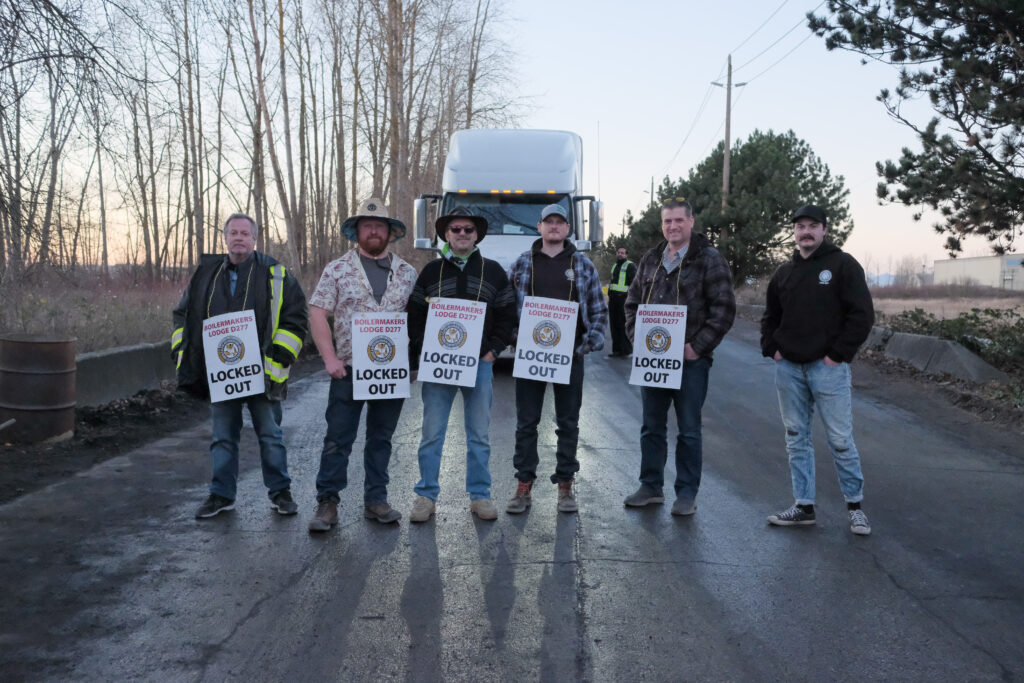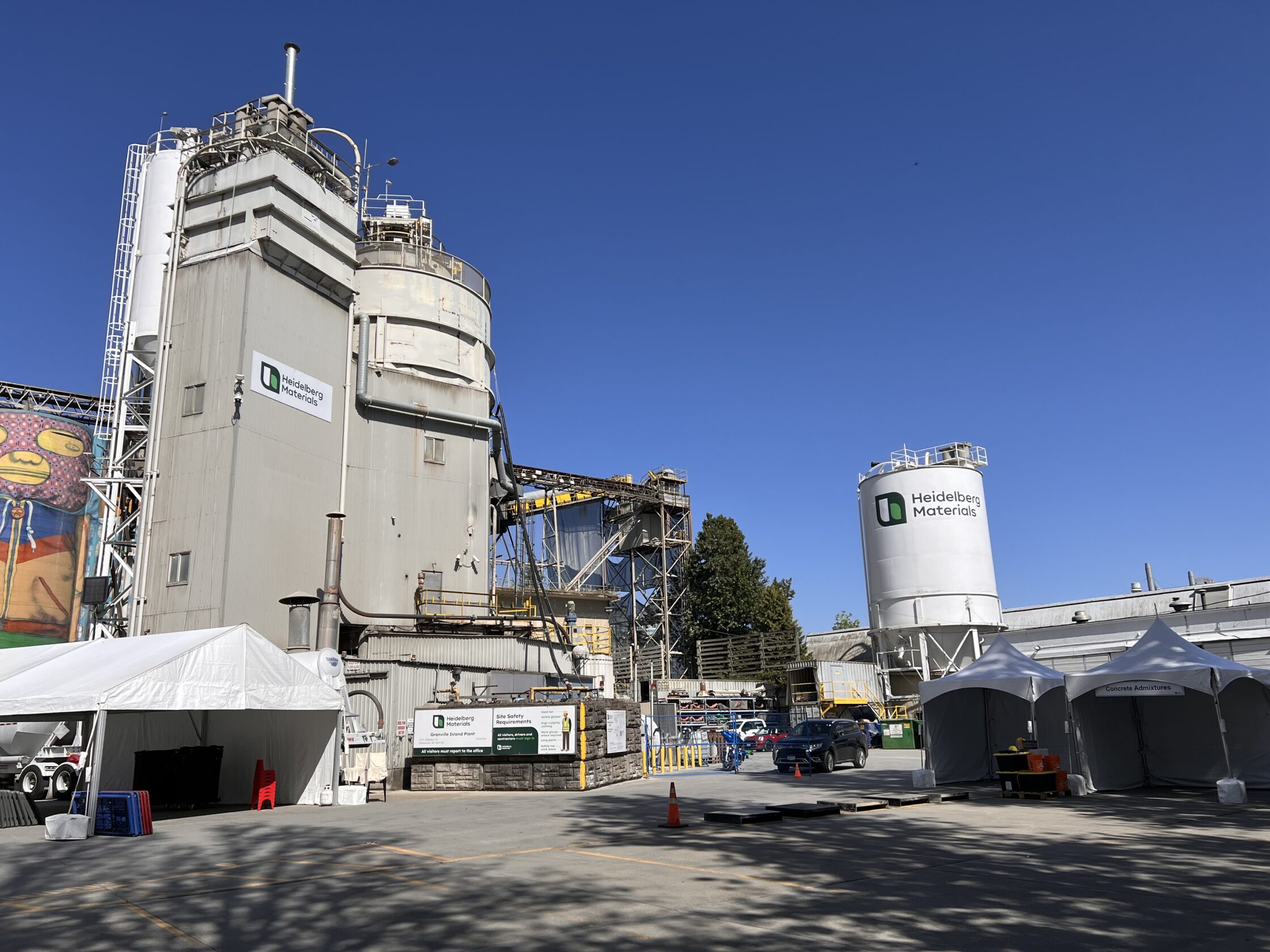Workers at the Heidelberg Materials concrete plant in Delta, B.C., have been locked out from work since January 13. The union, International Brotherhood of Boilermakers D277, says Heidelberg is growing “desperate” for the plant to work at full capacity again due to their self-imposed conditions.
Ryan Mountain, President of Local D277 spoke to The North Star. “The company is really feeling the heat. And I firmly believe this. And if they weren’t, trust me, they would not be reaching out.”
After negotiations being mostly at a standstill for about four months, proposals are sent back and forth once again. Despite this, Heidelberg has been working hard to minimize the effects of their lockout on their bottom line.
In violation of labour law, the company was bringing in cement from Edmonton to circumvent their need for the union workers. In response, the union filed an unfair labour practice complaint. “We got an injunction with the labour board, a rule in our favour, that the company is no longer allowed to bring in powder from Edmonton by rail car to our cement plant. So that was a huge win for us,” said Mountain.
According to Mountain, Heidelberg brought in this cement because it was unable to meet market demand. “It cost [the union] a lot of money, but the company is going to be paying a huge fine because of it.”
Mountain says Heidelberg is filing retaliatory disputes with the Labour Relations Board, “Citing harassment, threatening behaviour, holding up trucks at the picket line, and a couple other things,” but the courts haven’t made any definite rulings on any of those grievances.

The union now wants to block another workaround strategy used by the employer: the transport of clinker and basic cement powder (supplied by Lafarge, another concrete giant) to the Heidelberg plant.
“We’re looking to have that product declared the same thing, ‘replacement worker product.’ And I think we’ve got a fairly strong case.”
Despite the union not operating the factory, management has been running the kiln from time to time. According to Mountain, the kiln typically runs for about 10 months of the year but has only been running for about 25 days since the lockout began. “So very little run time.”
The workers suspect the kiln or the roller mill may have become damaged due to lack of maintenance.
“The roller mill is a big piece of machinery that makes the feed that goes to the kiln, makes the product. And the roller mill always has a weekly maintenance day. So we go down for 12 to 14 hours a week, where they do a complete once-over of the roller mill, fix what needs to be fixed, and they haven’t done that since we’ve been down, since January 13th, because they don’t have bodies that can do it.”
Mountain compared it to not keeping up on the maintenance of a car, but still driving it consistently for many years. “Then eventually something will go wrong and [the parts are] done until they get replaced, and I think that’s where they’re at right now.”
With the “cement season” starting, the union doesn’t see Heidelberg holding out forever. With tariffs making imports more expensive and large-scale expansions to the transit system ramping up in the summer like the Broadway Subway project and the Surrey–Langley SkyTrain project, local materials are going to be in high demand.
“A few things are happening that tell me that this is picking up. I don’t know when it’s going to end. It could be a week. It could be a year. I just don’t know. But things are picking up, which is good.”


Be part of the conversation!
Only subscribers can comment. Subscribe to The North Star to join the conversation under our articles with our journalists and fellow community members. If you’re already subscribed, log in.